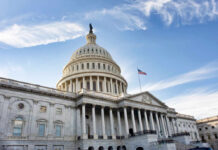
CNBC report on top destination states for movers sparks controversy over “worst places to live and work” rankings and implications for residents and newcomers.
Critics are worried about the fairness and accuracy of CNBC’s state rankings. They believe the methodology used should be more transparent. This is causing concern among policymakers and residents about the impact on state economies and reputations.
Some states previously seen as great for living and work are now facing reputation issues due to rankings that have left many in disbelief. Local governments and businesses are questioning the validity of the report.
10 worst states to live and work in for 2023, per CNBC.
10. Florida
9. Arkansas
8. Tennessee
7. Indiana
6. Missouri
T-4. Alabama
T-4. South Carolina
3. Lousiana
2. Oklahoma
1. TexasThe fact that these are all red states tells me there is a specific narrative they are trying to…
— John Pompliano (@JohnPompliano) July 18, 2023
The CNBC report was published on July 20, 2023, setting off heated debates nationwide. With an ongoing influx of individuals seeking better opportunities and lifestyles, these rankings significantly affect state demographics and economies. Additionally, the report’s timing raises questions about its potential impact on state policies and future migration patterns.
The reasons behind the rankings are yet to be fully disclosed by CNBC. However, experts believe that the methodology may need to be revised, leading to misleading conclusions about the desirability of these states for potential movers. Unraveling the underlying factors and their potential biases could be critical in understanding the accuracy and implications of the report.
The CNBC report’s release has sparked heated discussions among state officials, residents, and experts. While some view the rankings as a wake-up call for necessary improvements, others accuse the report of spreading misinformation that could harm local economies and communities. The credibility of CNBC’s research and reporting methodologies is now under scrutiny, and calls for transparency have intensified.
One prominent aspect that has intensified the uproar surrounding CNBC’s report is the growing concern over bias in the rankings. Critics argue that the absence of clear and transparent methodology and the subjective nature of the selected criteria suggests a potential agenda behind the rankings.
Commenting on the report, an economist stated, “Ranking states without providing transparent details on the weighting of factors used is problematic and can lead to misleading interpretations. It is essential to foster an honest and open dialogue to understand these rankings’ implications better.”













